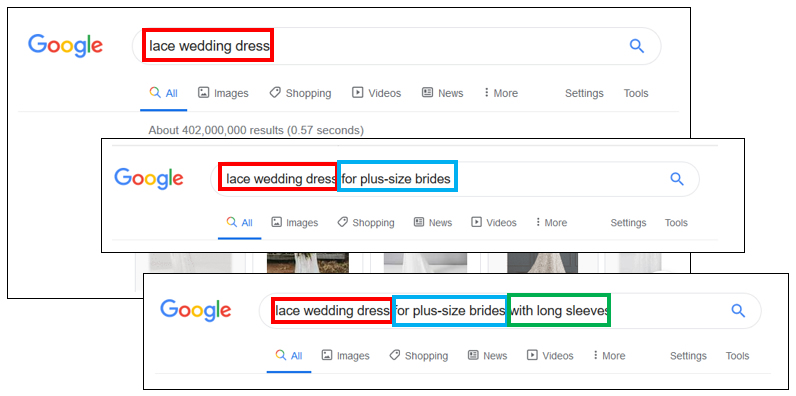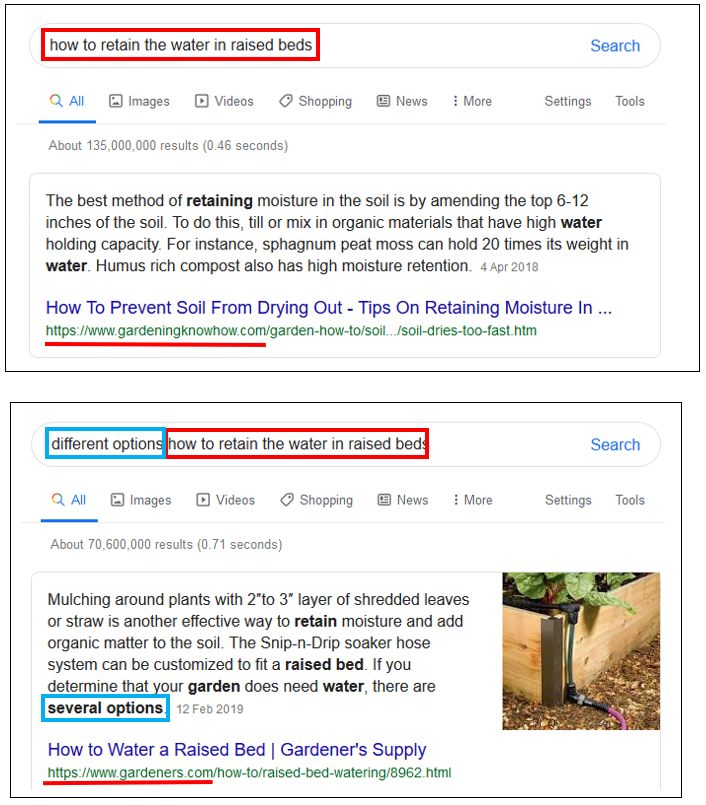
Working on answer box optimisation projects for our clients, we are sometimes asked to optimise a page for a featured snippet – but we find that the page (or the website) is not ranking highly enough for the keyword(s) the client is interested in.
The majority of the SEO community, including Webcertain’s own SEO experts, reckon that a page has a realistic chance of winning a featured snippet if it ranks in positions 2 to 5 (or at least on the first page), for that specific search query.
So, what if you do not have those already-enviable ranking positions? There is an option you may find interesting to explore: core keyword expansion into long-tail keywords.
User intent research shows that if the first page of search engine results does not match the user’s intent, users tend to add more keywords to clarify their initial request, refining their request, rather than changing the core search phrase.

So, if the competition for the broader term is a bit too tough, it’s worth going after more specific, niche search queries (as the featured snippet changes along with the search query), in order to match the more specific user intent.

So, the strategy is as follows:
- investigate the semantic core keywords of your website, finding which ones are already triggering the featured snippet(s)
- run keyword expansion research, focusing on long-tail keywords with acceptable search volumes, but also on the ones which differentiate your products/services from your competitors (e.g. referencing your location)
- explore which long-tail keywords already bring you traffic, engagement and conversions (e.g. using Google Search Console insights)
- check if any of those long-tail keywords are ranking in the top ten positions
- perform answer box optimisation for your chosen long-tail keywords, addressing in your content those element(s) which differentiate the long-tail keyword from the more generic search query
Around 50% of search queries are four words or longer – and with voice search growing, the proportion of long-tail queries is likely to increase even more.
Long-tail keywords are generally associated with higher click-through rates, respond very well to on-page optimisation, and usually indicate that the user is further along in the customer journey, so have better chances of converting. Therefore, winning position zero for such keywords definitely has good return-on-investment potential!
Moreover, even if you did not get a featured snippet, your efforts will pay off anyway, as we have seen from our experience that answer box optimisation has a significant positive impact on rankings.
I wish you good luck with your answer box optimisation efforts for long-tail keywords, and welcome your questions or comments about your own experience!
To learn more, check out my Brighton SEO presentation, on which this blog post is based, “How to increase global traffic and rankings with answer box optimisation”:
Zanna Spink
Latest posts by Zanna Spink (see all)
- How to manage an international team remotely - July 21, 2023
- Watch the recording: Audience targeting strategies for international marketers - January 18, 2022
- What is multichannel marketing? - June 19, 2020




